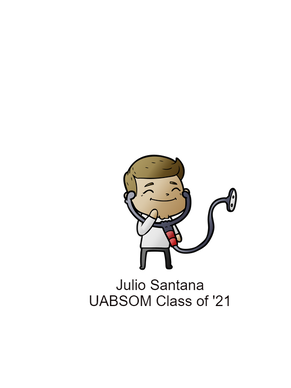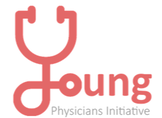Student Testimonials - Applications and Interviews

How can I get feedback on my application before I submit it?
"For the Activities/Work section, go to your schools writing center or English professors and have them read over your responses. Those limited numbers of characters are UBER important and you want to maximize your responses to be succinct and meaningful."
How do I personalize my responses to specific schools in my secondary application?
“Be specific about the school, as in look at their website and literally write in things you see on it that relate to it (e.g., SPECIFIC names of organizations at the school you would join as a medical student, the key words of the mission statement, etc.).
Make sure you really emphasize the way YOUR story and personality lines up with the schools mission statement (you need to paraphrase the schools mission in your response).”
Any general advice for interview day?
“Remember that anybody or everybody you meet or encounter will be providing feedback for your interview. On those student led tours, be attentive and ask questions if necessary. Try to talk to them and get to know at least one of your tour guides. Trust me, these students (at certain schools) will be providing an evaluation of you after the interview!
Be kind to EVERYBODY you encounter at the school!”
What are some words of encouragement that you can offer?
Believe in yourself. Seriously. If there is anything more that I look back and reflect on my journey is that. It took me 10 months to get accepted into medical school. I applied in June 2018, was wait-listed in January 2019, and was taken off the list and accepted in early April 2019. I applied to 40 schools, had only 2 interviews, 1 acceptance. If anything, this is one thing that is not really harped on. You have to keep in mind that your mental health will be taxed at times since anxiety towards the future will always be on the back of your mind.
Also, DO NOT compare yourself to others. You might have friends that get interviews or even accepted before you do. That is okay. We all have our own journey.
If you are in a gap year, please enjoy the time off. I mean it. Medical school will be your entire life once you start so make sure to travel, volunteer, work, etc. or do whatever you want to do with your life before you start"
What can I expect at an MMI?
“You need to be comfortable meeting, interacting, and being evaluated with/by new people in rapid 5 minute intervals because that is the format of MMI's.
Be familiar with certain healthcare policies such as Medicare, Medicaid, and the current health insurance system. You will most likely be asked about the current issues in healthcare that are being discussed in the news. Reading the newspaper on these topics at least a month or two beforehand will serve you well for this.
“Keep your energy up by chit-chatting with other applicants in between. While they’re responding, don’t get too caught up with listening to them as this could evoke all sorts of feelings. Use the time to make sure you have a gathered response in your head. Still, don’t tune them out. Make sure you get the gist of their story/responses in case they ask about it later as a sort of trick question.”
Every answer you give should be PATIENT-centered. As in, you provide a solution or response that will benefit the patient the most.
Also, you HAVE to articulate both sides of the argument in your response. This means that you need to state your position and also acknowledge the other side (saying you "understand the other sides disposition but, believe that your stance is more beneficial for the health and well-being of the patient.")
These interviews are looking for if you are able to adequately articulate the four principles of medical ethics (autonomy, beneficence, non-maleficence, and justice) in a variety of novel situations + work in a team with others to solve novel problems.”
"For the Activities/Work section, go to your schools writing center or English professors and have them read over your responses. Those limited numbers of characters are UBER important and you want to maximize your responses to be succinct and meaningful."
How do I personalize my responses to specific schools in my secondary application?
“Be specific about the school, as in look at their website and literally write in things you see on it that relate to it (e.g., SPECIFIC names of organizations at the school you would join as a medical student, the key words of the mission statement, etc.).
Make sure you really emphasize the way YOUR story and personality lines up with the schools mission statement (you need to paraphrase the schools mission in your response).”
Any general advice for interview day?
“Remember that anybody or everybody you meet or encounter will be providing feedback for your interview. On those student led tours, be attentive and ask questions if necessary. Try to talk to them and get to know at least one of your tour guides. Trust me, these students (at certain schools) will be providing an evaluation of you after the interview!
Be kind to EVERYBODY you encounter at the school!”
What are some words of encouragement that you can offer?
Believe in yourself. Seriously. If there is anything more that I look back and reflect on my journey is that. It took me 10 months to get accepted into medical school. I applied in June 2018, was wait-listed in January 2019, and was taken off the list and accepted in early April 2019. I applied to 40 schools, had only 2 interviews, 1 acceptance. If anything, this is one thing that is not really harped on. You have to keep in mind that your mental health will be taxed at times since anxiety towards the future will always be on the back of your mind.
Also, DO NOT compare yourself to others. You might have friends that get interviews or even accepted before you do. That is okay. We all have our own journey.
If you are in a gap year, please enjoy the time off. I mean it. Medical school will be your entire life once you start so make sure to travel, volunteer, work, etc. or do whatever you want to do with your life before you start"
What can I expect at an MMI?
“You need to be comfortable meeting, interacting, and being evaluated with/by new people in rapid 5 minute intervals because that is the format of MMI's.
Be familiar with certain healthcare policies such as Medicare, Medicaid, and the current health insurance system. You will most likely be asked about the current issues in healthcare that are being discussed in the news. Reading the newspaper on these topics at least a month or two beforehand will serve you well for this.
“Keep your energy up by chit-chatting with other applicants in between. While they’re responding, don’t get too caught up with listening to them as this could evoke all sorts of feelings. Use the time to make sure you have a gathered response in your head. Still, don’t tune them out. Make sure you get the gist of their story/responses in case they ask about it later as a sort of trick question.”
Every answer you give should be PATIENT-centered. As in, you provide a solution or response that will benefit the patient the most.
Also, you HAVE to articulate both sides of the argument in your response. This means that you need to state your position and also acknowledge the other side (saying you "understand the other sides disposition but, believe that your stance is more beneficial for the health and well-being of the patient.")
These interviews are looking for if you are able to adequately articulate the four principles of medical ethics (autonomy, beneficence, non-maleficence, and justice) in a variety of novel situations + work in a team with others to solve novel problems.”

How should I dress?
“Interview days are long. Make sure you’re comfortable but of course crisp and professional! Ladies, if you wear heels I recommend bringing a change of shoes for in-person interviews.”
How can I best prepare for the one-on-one interview?
“DO NOT MEMORIZE YOUR RESPONSES! This is very obvious in interviews and looks bad.”
“Review your application! Everything you say must match it, unless of course you’ve had new experiences. If you did research, make sure you rehearse explaining what you did & the outcomes. They will definitely ask about it. Brushing up on world events and healthcare news is a good idea too. They may ask things like “what do you think it’s the most pressing issue in healthcare today?” And you want to give an informed response.”
How can I ease my interview day anxiety?
“They hand selected you to be there. You met the same criteria as everyone else in the room. Med school applicants are very diverse & interesting people, but don’t let their stories/experiences make you feel less than qualified. Remember you’re all on a level playing field on that day, and you’re there to show your best self to the school. Of course, also pay attention to how the school makes you feel. I recommend journaling afterwards so you have a record when it comes time to decide who will be lucky enough to have you attend.”

Do you have any resources on Multiple Mini Interviews that you’d recommend?
“Samir Desai book of MMI, it is the best resource”
|
What should I include in my personal statement?
Your personal statement should feel genuine. One piece of advice I was given was to sit down and write without thinking, start with an idea and let if flow, see where it takes you. Odds are that you will not like it at first, but it’s a start! After that, edit this piece of writing, add to it, delete from it, erase it all together if you hate it, but at least you’ll soon start to get an idea of what you want your PS to look like. One thing you should avoid is résumé dumping, don’t use your PS to underline everything you did during undergrad, that is what the activities section is for. Try to highlight one or two significant events that impacted your decision to choose medicine; and then, as my English professor would say “show don’t tell.” In other words, show your reader why/how those experiences were significant, don’t say “I became more empathetic because of …” but rather describe the experience and allow the reader to come to that conclusion on their own. |
How do I submit my secondary applications in an efficient manner?
Many medical schools reuse questions from previous years in their supplemental applications. These can be found online through each school's website or by googling the school's secondary application. One good tip is pre-writing your responses before receiving the secondary application, that way once you receive it, you can make any necessary adjustments and submit it as soon as possible. HOWEVER, please be aware that some schools tweak their questions each year or may completely change them. So this should be done sparingly with schools that have a record for using similar applications in previous years. Also, try not to wait too long before submitting your secondary apps. While applying I was told to submit my secondaries within two weeks of receiving them. This shows the school that you are highly interested in their program.
What should I expect on interview day?
STAY AWAY from online forums. All they do is instill fear in eager applicants. You will notice that many previous applicants/students choose online platforms to describe their negative experiences about interview day and their applications. All this does is make you more anxious and nervous. Although interview day can be quite intimidating, it is actually more laid back and relaxing than you would expect. All you are doing is meeting with people who genuinely want to get to know you and see if you are a good fit for their program. Everyone you meet that day only wants to see you succeed, and they are giving you the opportunity to show them why you are special. So show them! And always remember that every person you come into contact with, whether an interviewer, current student, or other staff member, will have some influence over the decision to accept you into the program. Always remain professional, even when those around you may not be.
Many medical schools reuse questions from previous years in their supplemental applications. These can be found online through each school's website or by googling the school's secondary application. One good tip is pre-writing your responses before receiving the secondary application, that way once you receive it, you can make any necessary adjustments and submit it as soon as possible. HOWEVER, please be aware that some schools tweak their questions each year or may completely change them. So this should be done sparingly with schools that have a record for using similar applications in previous years. Also, try not to wait too long before submitting your secondary apps. While applying I was told to submit my secondaries within two weeks of receiving them. This shows the school that you are highly interested in their program.
What should I expect on interview day?
STAY AWAY from online forums. All they do is instill fear in eager applicants. You will notice that many previous applicants/students choose online platforms to describe their negative experiences about interview day and their applications. All this does is make you more anxious and nervous. Although interview day can be quite intimidating, it is actually more laid back and relaxing than you would expect. All you are doing is meeting with people who genuinely want to get to know you and see if you are a good fit for their program. Everyone you meet that day only wants to see you succeed, and they are giving you the opportunity to show them why you are special. So show them! And always remember that every person you come into contact with, whether an interviewer, current student, or other staff member, will have some influence over the decision to accept you into the program. Always remain professional, even when those around you may not be.

How do I approach my secondary applications?
“Prepare them ahead of time. You can find secondaries in the student doctor network.”
Do you have any advice about Multiple Mini Interviews?
“Read Multiple Mini Interview (MMI): Winning Strategies from Admissions Faculty. You can find it on Amazon. Worth it!!!!!!!!!!”

How do I know if my personal statement is legit?
“Whatever your statement is, you should get a little emotional when you read it a couple of weeks after you write it. That means it reflects something deep about you, well.”
How do I ask for a letter of recommendation?
“If you think someone could write a strong letter for you, go ahead and tell them months in advance that you’d like for them to write it, and you want to find ways to work with that person so they can honestly and easily write about you. It communicates maturity, consideration, and is rarely done.”
Any golden nuggets of information?
“Find physicians who have careers that you’d like to emulate. See what schools they went to, and include that kind of institution in your list.”
“Whatever your statement is, you should get a little emotional when you read it a couple of weeks after you write it. That means it reflects something deep about you, well.”
How do I ask for a letter of recommendation?
“If you think someone could write a strong letter for you, go ahead and tell them months in advance that you’d like for them to write it, and you want to find ways to work with that person so they can honestly and easily write about you. It communicates maturity, consideration, and is rarely done.”
Any golden nuggets of information?
“Find physicians who have careers that you’d like to emulate. See what schools they went to, and include that kind of institution in your list.”

How do I choose the right school?
“I applied based on my MCAT scores and GPA because I had the mentality of just wanting to get in. But once I got in and had to choose, I chose based on whether the school had cumulative exams (I thought it would help me more with boards), if there was letter grading (because I didn't want to have a pass/fail grading system), if lectures were mandatory or not, what resources they provided us for studying for boards, what research opportunities there are (I didn't want mandatory research but I did want the choice of being able to do research), and of course match rates to my specialty of interest. I also wanted to be where I had the best support system and an environment where I felt comfortable."
How do I keep track of my applications?
Make a spreadsheet of your schools, with their gpa, mcat, state/city, etc. And start checking them off as you apply there. Then check them off once you submitted the secondaries. Helps you keep track of your schools and applications!! I would also write which applications I was in the process of working on and when I got them. I didn't want to wait too long before sending a secondary back.”
When should I be completing my secondary applications?
“Fill them out as you get them! They will start coming in all at once and it may feel overwhelming. Also keep a folder with all your essays. You'll hit a point where some questions are just slightly different from one another. All you'll have to do is tweak the essay to personalize it more towards a school. And get grammarly!! Helped my essays sound more professional. It also helps to have some people read your work and critique it. For me it was my parents who did the proofreading because they will dissect every detail. So find someone who does the same!”
How do I know if my personal statement is ready?
“Revise it multiple times. Have your friends and parents revise it. It never feels perfect! Sometimes you have to leave it for a few days and come back to it with fresh eyes. Whatever you do, make this your best piece. I got a lot of interview questions from my personal statement. It's supposed to tell the interviewers your story and why you are the person you are. You will have plenty of "why medicine" essays to write so this doesn't necessarily need to be a complete "why medicine" paper. I wrote mine in a way that tells my story, but alludes to how those events led me to pursue medicine.”
What can I do to get good recommendation letters?
“Get close to professors from the beginning. How? Ask questions, go to office hours, become a TA if you love the subject (it's a great way to get close to a professor), or just swing by their office and say 'hey" real quick. All these interactions add up. And when it comes to asking for the letter, do it in person if you have the option to do so. Make sure you did well in the class though and try to get the letter from a professor who does know you. Anyone can get you a generic letter, but you do not want that. That's why it's important to form relationships with your professors.”
How did you practice for your interviews?
“I practiced in front of a mirror first, then with my parents. I also had a document with the questions from "The Interview Playbook" and my answers to them.”
What resources would you recommend for preparing for interviews?
“The Interview Playbook is a great book to prep you for interviews. Also SDN has some questions that students said they were asked on interview day in a particular school. Make sure for each school you interview at, you know the mission statement so you can tailor your answers showing that you agree with their mission, making you a great fit. Also note what makes the school different from other schools. They may ask why you would pick that school over all others.”
Do you have any general advice?
“Time management is a must! You will thank yourself later if you start now with learning how to prioritize. Also, find something outside of school that helps you destress. Having good habits from the beginning will help your transition into medical school be a little less bumpy!”
“I applied based on my MCAT scores and GPA because I had the mentality of just wanting to get in. But once I got in and had to choose, I chose based on whether the school had cumulative exams (I thought it would help me more with boards), if there was letter grading (because I didn't want to have a pass/fail grading system), if lectures were mandatory or not, what resources they provided us for studying for boards, what research opportunities there are (I didn't want mandatory research but I did want the choice of being able to do research), and of course match rates to my specialty of interest. I also wanted to be where I had the best support system and an environment where I felt comfortable."
How do I keep track of my applications?
Make a spreadsheet of your schools, with their gpa, mcat, state/city, etc. And start checking them off as you apply there. Then check them off once you submitted the secondaries. Helps you keep track of your schools and applications!! I would also write which applications I was in the process of working on and when I got them. I didn't want to wait too long before sending a secondary back.”
When should I be completing my secondary applications?
“Fill them out as you get them! They will start coming in all at once and it may feel overwhelming. Also keep a folder with all your essays. You'll hit a point where some questions are just slightly different from one another. All you'll have to do is tweak the essay to personalize it more towards a school. And get grammarly!! Helped my essays sound more professional. It also helps to have some people read your work and critique it. For me it was my parents who did the proofreading because they will dissect every detail. So find someone who does the same!”
How do I know if my personal statement is ready?
“Revise it multiple times. Have your friends and parents revise it. It never feels perfect! Sometimes you have to leave it for a few days and come back to it with fresh eyes. Whatever you do, make this your best piece. I got a lot of interview questions from my personal statement. It's supposed to tell the interviewers your story and why you are the person you are. You will have plenty of "why medicine" essays to write so this doesn't necessarily need to be a complete "why medicine" paper. I wrote mine in a way that tells my story, but alludes to how those events led me to pursue medicine.”
What can I do to get good recommendation letters?
“Get close to professors from the beginning. How? Ask questions, go to office hours, become a TA if you love the subject (it's a great way to get close to a professor), or just swing by their office and say 'hey" real quick. All these interactions add up. And when it comes to asking for the letter, do it in person if you have the option to do so. Make sure you did well in the class though and try to get the letter from a professor who does know you. Anyone can get you a generic letter, but you do not want that. That's why it's important to form relationships with your professors.”
How did you practice for your interviews?
“I practiced in front of a mirror first, then with my parents. I also had a document with the questions from "The Interview Playbook" and my answers to them.”
What resources would you recommend for preparing for interviews?
“The Interview Playbook is a great book to prep you for interviews. Also SDN has some questions that students said they were asked on interview day in a particular school. Make sure for each school you interview at, you know the mission statement so you can tailor your answers showing that you agree with their mission, making you a great fit. Also note what makes the school different from other schools. They may ask why you would pick that school over all others.”
Do you have any general advice?
“Time management is a must! You will thank yourself later if you start now with learning how to prioritize. Also, find something outside of school that helps you destress. Having good habits from the beginning will help your transition into medical school be a little less bumpy!”

How do I make my application stand out?
“Be sincere in your commitment to service. Make your application reflect the kind of doctor/person you want to be. Don’t operate with the mindset that you’re checking things off a list because it will surely come off that way in your application. Do things because you enjoy them and then connect them to how they make you a better person and how they will contribute to you becoming the best doctor for your patients.”

